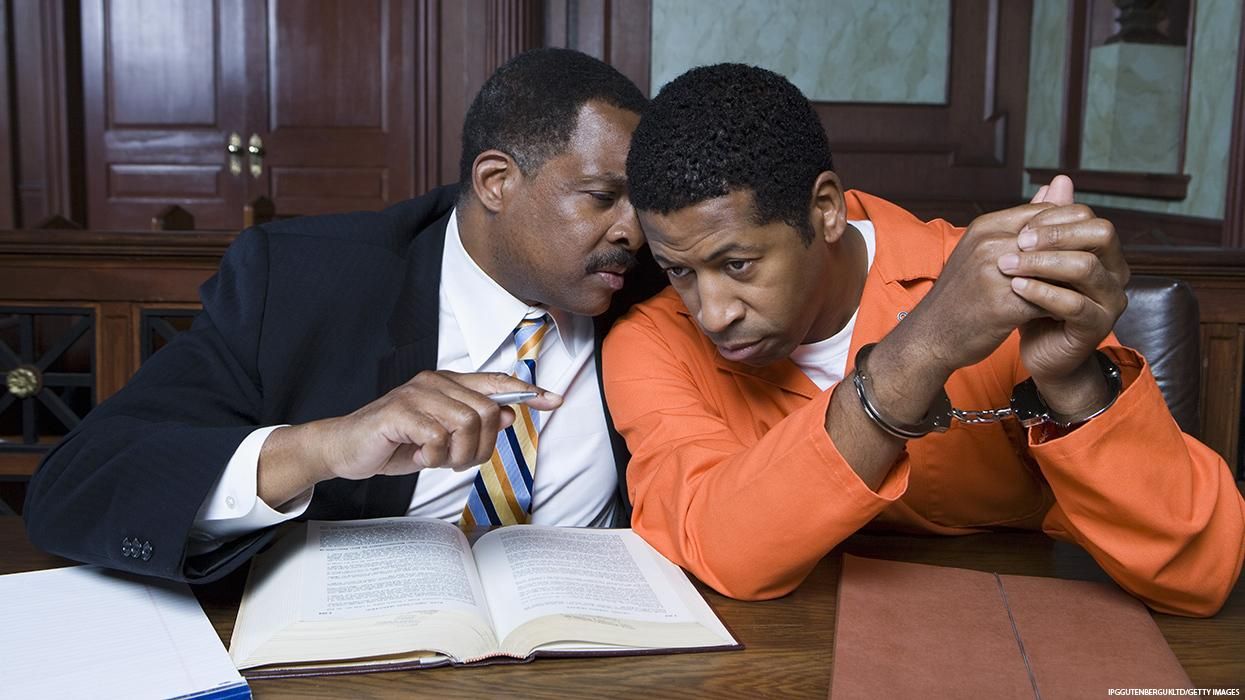A new report by the National Registry of Exonerations has found that Black people are seven times more likely than white people to be falsely convicted of a serious crime.
Data surrounding serious crimes such as homicide, sexual assault, and drug-related offenses found that throughout the past four decades, despite making up less than 14 percent of the U.S. population, Black people account for 53 percent of exonerations.
In addition to false convictions, Black people also spend significantly more time in prison for false convictions, either awaiting trial or before exoneration, with an excess of 20 to 40 years spent detained.
Data for Latinos, Asian Americans, and Indigenous people was not available as a result of "missing data" and "inconsistent standards for tabulating those racial and ethnic categories."
Samuel Gross, lead author of the report, told Yahoo News: "[The report] focuses on how it’s dangerous, in a particularly disturbing way, that there’s a possibility of being convicted of a crime that you didn’t commit. The general conclusion is no surprise. Black people are much more likely to get the short end of the stick than white people.”
In homicide convictions where the defendant was later exonerated, cases with Black suspects were 50 percent more likely to include police misconduct. In fact, Black people convicted of murder are 80 percent more likely to be innocent than other demographics.
Black people are also eight times more likely to be falsely convicted of sexual assault than white people, though the report revealed this is mainly due to white victims misidentifying Black suspects. However, DNA testing has largely curtailed false rape convictions, with only two exonerations since 2010.
In cases of drug convictions, the study revealed that 259 of the 554 exonerated, the majority being Black, were directly framed by police. Despite research showing that white people use drugs at a slightly higher rate, Black people are twice as likely to be arrested for drug crimes.
“Because drug crimes are almost never reported to police, the police choose who to pursue for drug offenses — and they choose to stop, search and arrest Black people several times more often than whites,” Gross' report reads. “That’s racial profiling. One of its deplorable consequences is drug crime convictions of innocent Black defendants.”
Gross himself added: "Criminal justice statistics in the United States are not bad. They’re abysmal.”
Christina Swarns, executive director of the Innocence Project -- nonprofit organization that has helped to exonerate 10 people in the past year, the majority being Black men -- believes that local and higher government offices need to take accountability for the misconduct of law enforcement in these cases.
“The report really shows the depth of the belief that race is a proxy for criminality in the criminal legal system," Swarns said. "It’s hard to wrap your head around how much of a failure this is that we have jurisdictions that fail people this spectacularly, and then refuse to acknowledge it and then refuse to sort of make it right. … The weight of all of that and the burden of trying to correct all of that is carried by my clients, which is insane, to be charitable.”



















































